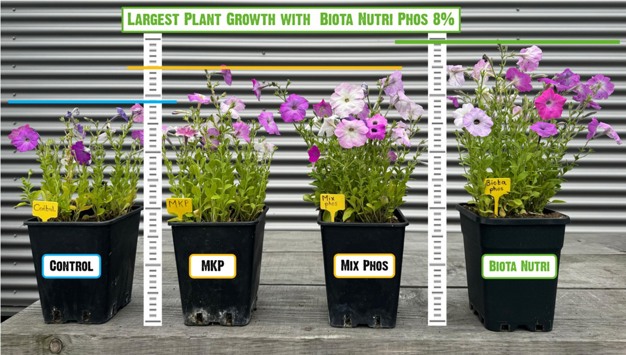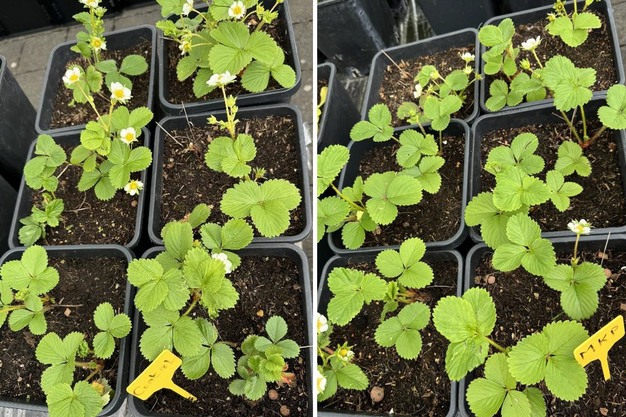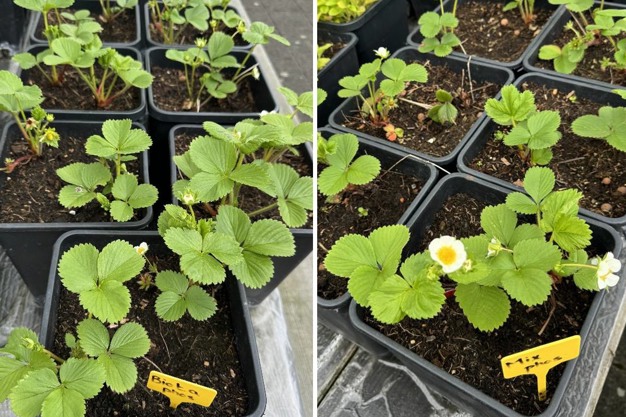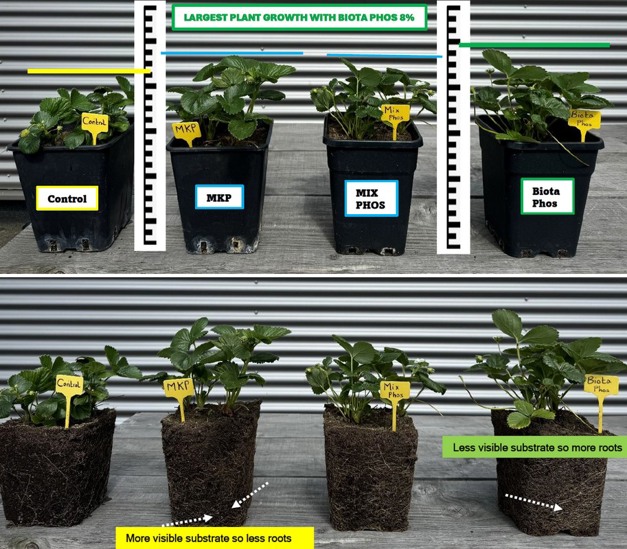Biota Nutri is proud to announce the launch of its new sustainable phosphate product, Biota Phos. Made from plant waste streams, Biota Phos is 100% organic and circular, demonstrating that it is possible to recover phosphate and make it fully available for plant use.
Biota Phos contains 8% phosphorus and is set apart from traditional sources like monopotassium phosphate (MKP), which is entirely chemical. "With this product, we show that it is possible to recover phosphate and make it 100% available for the plant," said Peter Klein, founder and CTO of BiotaNutri. "Even better, our new phosphate maximizes uptake by the plant compared to MKP, which means there are none of the typical deposits caused by mineral leakage."

Biota Phos Crop Trial
The use of phosphorus
Phosphorus is a vital component in the process of plants converting the sun's energy into food, fiber, and oil. It plays a key role in photosynthesis, the metabolism of sugars, energy storage and transfer, cell division, and the transfer of genetic information. Phosphorus promotes the growth of the root system and helps establish new plant growth. It is necessary for root development, energy transfer and storage, nucleic acid synthesis, and enzyme activation. A phosphorus deficiency can lead to stunted growth and dark green leaves.
Research methods
For their research, BiotaNutri utilized strawberry crops to evaluate the effectiveness of Biota Phos. Strawberry cuttings were transplanted into pots with two cuttings per pot. The study consisted of six pots with 12 replicates for each treatment. Four treatments were employed: Control, Biota Phos 8%, MKP, and Mix Phos. The control group received the same fertilizer recipe but without any phosphorus supplementation. The fertilizers were administered to the plants twice a week over three months, with the same amount of fertilizers of EC=1 given to all plants.

Control treatment (left) and MKP Treatment (right) after 3 weeks of fertilization

Biota Phos Treatment (left) and MIX Phos Treatment (right) after 3 weeks of fertilization
Research results
The results revealed that the plants treated with Biota Phos exhibited the largest growth overall. The control plants showed a very poor root system in comparison to those treated with MKP, Mix Phos, and Biota Phos. Furthermore, plants given Biota Phos demonstrated better root system growth than those receiving MKP. The number of flowers produced by strawberry plants treated with Biota Phos was 16% higher than that of plants receiving MKP, while those treated with Mix Phos had an even greater flower count.
However, plant sap analysis indicated that phosphorus uptake from MKP (1467 ppm) was higher than that from Biota Phos (1299 ppm).

"We are very pleased with the trial results from our new Biota Phos, as they show the true value of circular fertilizers," Peter added. "These results also highlight what we can achieve with organic fertilizers and the potential they offer for the future of the organic market and sustainable agriculture."
In conclusion, Biota Phos 8% has proven its beneficial effect on the growth and root system of crops and has demonstrated that it is significantly better than the chemical fertilizer MKP. "A grower using traditional chemical fertilizer can add Biota Phos 8% as a root boost to enhance the growth of their crops and gain better yields," Peter concluded.
For more information: Biota Nutri
Biota Nutri
www.biota.nu
